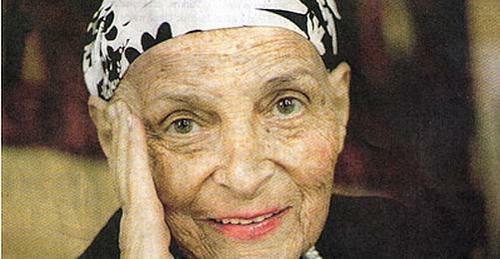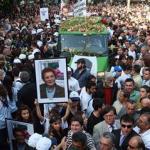At around 4.30 am on Monday morning (18 May), Prof. Dr. Türkan Saylan, who was receiving cancer treatment at the Istanbul University Çapa hospital, passed away.
She was president of the Association for the Support of Contemporary Living (ÇYDD) for eighteen years, an association that enabled many children and young people to access education.
Minister of Culture and Tourism, Ertuğrul Günay, acknowledged her contribution and said, "I thank her in the name of the government for her services."
Prof. Dr. Aysel Çelikel announced that Saylan's coffin would be taken to the Lütfi Kırdar Congress and Exhibition Centre at 2 pm, where a 1.5 hour commemorative ceremony would be held. Following the funeral prayer at the Teşvikiye Mosque, she would then be buried in the Zincirlikuyu graveyard in Istanbul.
Protests against police raid
As part of the investigation into the ultranationalist clandestine Ergenekon organisation, Saylan's home, as well as many branches of the ÇYDD, had been searched early in the morning on 13 April. The searches had provoked a public outcry among parts of society.
Saylan had been struggling with breast cancer for a long time, receiving chemotherapy regularly for the last five years. In the last few years, her liver had also been affected.
In the last few days, she had not been allowed visitors, as her blood levels were very low.
Necla Arat, Istanbul MP for the Republican People's Party (CHP) said on NTV, "My condolences to Turkey and to our girls. She was one the most valuable people in Turkey. I here want to condemn the slander and accusations spread about her. But the ÇYDD will emerge from this stronger than ever."
"I have done my duty"
Saylan is said to have been conscious up to 24 hours before her death. Her last message to the doctors was, "I have done my duty, and I am ready to die."
Who was Türkan Saylan?
Türkan Saylan was born in Istanbul in 1935. She graduated from Istanbul University's medical faculty in 1963.
She specialised in dermatological and veneral diseases and also took further training in Britain with a scholarship from teh British Culture Delegation. She became a professor in 1977.
She started working on leprosy in 1976, founding the Foundation for Fighting against Leprosy in 1976.
She formed the Istanbul medical faculty leprosy research and implementation centre, of which she was director between 1981 and 2001.
In 1989, she was co-founder of ÇYDD and served as its president for a long time.
She was a member of the Council for Higher Education from 2001 to 2007, and a member of the Prime Ministerial Human Rights Advisory Board and the Istanbul Province Human Rights Board from 2003 to 2004.
She was the recipient of many national and international awards, one of them the Gandhi award for her work on leprosy. (EÖ/AG)












